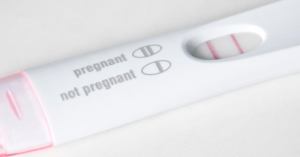As the proposals for a second stimulus check begin to take shape, so do the rules for eligibility. Americans have been waiting since May for the U.S. Congress to work out a deal for a new economic stimulus package, and a lot has changed in that time. With different proposals coming and going from the table, the rules for receiving another direct payment could change significantly before another payment is approved.
Americans have been continually surprised by lawmakers’ lack of progress on a second stimulus check bill over the last six months — from the United States Senate‘s refusal to consider the issue for two months to the House of Representatives’ refusal to compartmentalize the legislation. Now, with the 2020 presidential election over, some have renewed hope that more relief is on the way, but the form that relief could take is as unclear as ever. Democrats are still pushing a revised version of their HEROES Act, while Senate Republicans are sticking with their HEALS Act, while also touting smaller “skinny bills” as well.
Videos by PopCulture.com
The House’s bill costs about $2.2 trillion in total — the same as the CARES Act back in March — and includes many of the same programs. The HEALS Act has not changed since July, with a strict ceiling of $1 trillion and major cuts to programs like unemployment enhancement, coronavirus safety measures and school funding.
There are also proposals from the White House that often straddle the ideas of these two legislatures, though some now doubt that President Donald Trump will pass anything major since he has lost the election. Whether it is Trump or President-elect Joe Biden negotiating the next stimulus package could be a big factor in how the whole thing looks.
Somewhere within these plans and the various combinations that can be made between them is the stimulus package Americans need. For now, here is a breakdown of the different eligibility rules in each proposal and how they could impact your next stimulus check.
‘Nonresident Aliens’ & Their Spouses

People defined by the U.S. government as “nonresident aliens” may not be eligible for a second stimulus check, even if they are in the country legally. This category is defined as someone who “has not passed the green card test or the substantial presence test,” according to a report by CNET. Under the CARES Act, a Social Security number was needed to receive a stimulus check, leaving many immigrants out.
Under the current proposals, Democrats’ HEROES Act would offer stimulus checks to noncitizens who pay taxes through a taxpayer identification number, while the HEALS Act would not. Additionally, the HEALS Act threatens to make the same error as the CARES Act with the spouses of noncitizens — making them ineligible for stimulus checks if they file taxes jointly.
People Who Owe Child Support

Under the CARES Act, child support was the only kind of debt that could be collected from a stimulus check, and under the Republican HEALS Act, that rule would stand. However, the Democrats’ HEROES Act would stop debt collectors from going after stimulus checks even for late child support, so it could favor divorced parents in that way.
Incarcerated People

There was no specific language about incarcerated people in the CARES Act, so the IRS initially assumed they were ineligible for stimulus checks. However, a ruling by a California federal judge allowed inmates to file for the first payment, so if the rules aren’t changed in the next bill, inmates will still be eligible through this precedent. The IRS has reportedly appealed this decision, hoping that the next round will leave incarcerated Americans out.
So far, it is not clear if the HEROES Act, the HEALS Act, the Trump administration proposal or the potential Biden administration proposal have any different language about inmates this time around. It could be that inmates will still be eligible, but only if they know how to file for their payment.
Underage Taxpayers

Another major controversy of the CARES Act stimulus check was that teenagers aged 16 or 17 could not get their own stimulus check — even if they were paying income tax or other forms of tax — but were also not eligible for the $500 dependent bonus on their guardians’ filings. This oversight has been addressed in some of the new proposals, but not in the ways that some critics wanted.
The Democrats’ HEROES Act would allow guardians to collect a $500 dependent bonus for anyone of any age, including minors who work, and the Republicans’ HEALS Act would do the same. This is frustrating for working teenagers who want a stimulus check of their own, but it could be some consolation for struggling families. Meanwhile, the latest proposal from the Trump administration actually increases the amount from $500 to $1,000, though there is no guarantee that it will pass before his presidency is over.
Young Adult Dependents

There is a similar issue for young adults who are still claimed as dependents on their guardians’ taxes — often because they are full-time college students or are living at home. In many cases, these adults are working full time, paying taxes on income, property and other amenities, yet cannot collect their own stimulus checks because their tax status is dictated by someone else’s filing. In these cases, the new proposals would give a $500 or $1,000 bonus to their guardians as defined above, but would still not give these young adults a stimulus check of their own.
Ineligible Single Taxpayers

Finally, the HEROES Act and HEALS Act are both still agreed on the basic eligibility rules dictated by the annual gross income (AGI) of an American taxpayer with a social security number. For a person who files taxes as a single individual, they would get a $1,200 stimulus check if their AGI is $75,000 per year or lower. For every $100 above that, the check would decrease by $5 — so, a person with an AGI of $75,100 would get $1,195, a person with an AGI of $75,200 would get $1,190, and so on.
Their eligibility ends entirely at an AGI of $99,000 per year. Any making that amount or more as a single taxpayer is not eligible for a stimulus check.
Ineligible Heads of Household

Taxpayers who file as a “head of household” are beholden to similar rules with different income thresholds to keep in mind. Heads of households are eligible for a stimulus check of $1,200 with an AGI of $112,500 or less. The check would decrease by the same increments described above up to an AGI of $146,500. Anyone making $146,500 or more per year would not be eligible for a stimulus check at all.
Ineligible Joint Taxpayers

Lastly, couples who file taxes jointly are held to the same eligibility rules as single taxpayers, but with the threshold amounts doubled. So, a couple with a combined AGI of $150,000 or less would get a $2,400 stimulus check, and it would decrease incrementally from there. Joint tax filers with an AGI of $198,000 per year or higher would not be eligible for a stimulus check at all.








